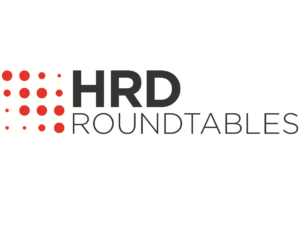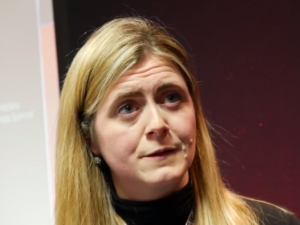Managing a global workforce: Lenka Patten, VP HR, Reebok
- 5 Min Read
HRD Connect sat down with Lenka Patten, VP HR, Reebok, to discuss the biggest challenges when managing a global workforce, and the key to talent retention.
- Author: HRD Connect
- Date published: Jun 4, 2019
- Categories

Managing reputation, retention, and culture, are just a few of the challenges that are faced for global organisations on a weekly basis, how do businesses overcome all of these challenges? And what will we see emerge in the future of global workforces alike? HRD Connect exclusively spoke to Lenka Patten, VP HR, Reebok to hear her thoughts.
How do you sustain the reputation of such a recognized brand such as Reebok?
There are many reputational risks that we have these days that are bigger than they used to be in the context of a digital world and social media. Any brand has much higher risk needs to be much more attuned to their reputational risk because anything can spread over to social media in nanoseconds. We are hyper-focused on it in a number of ways.
What would you say is the biggest challenge that you face in your role?
From a people strategy perspective, it is how do we as HR help the business to accomplish
what they need to accomplish. The timeframe for everything is shortening, the consumer behaviour is different. It’s the desire to have immediate instant gratification is shortening, the product development cycles, and so on. Our work is a lot around how do we help the business get supported structurally, from a process perspective, but more importantly, the right people in the right places at the right time? Which includes how trained people are. What’s the mindset that people have to deal with change? Our biggest challenge is how do we constantly keep creating clarity and focus within a very fast moving environment. Because if you’re moving fast, and things are changing fast, there’s always a potential for confusion, lack of role, clarity, lack of priorities, clear priorities for people.
How do you maintain successful talent retention at Reebok?
Focusing and listening to our employees we do quarterly engagement surveys where we really understand through the comments what makes people tick and we respond to it. Our number one reason for departure is career development, 70% of our population is under 40 and 36% of our population is under 30. There is a very high expectation to progress fast and not be in a job for very long, sometimes we are frankly not able to satisfy those expectations fast enough. What we can do is create the notion of employability, we can help them develop skills that they can take anywhere, and so we do invest a lot in employee development. We are also part of a larger brand. So we’re trying to instil talent movements equity across the globe. This is a great value proposition for some people, not for others which depends on what their personal goals are, but focusing on kind of the major themes is really important.
We really focus on the baseline work as well, which includes our suite of benefits and how competitive we are, we really focus on people having work-life balance, we have implemented in our flex policy in a way that gives a lot of variety for people and how they consume the flexibility, whether it’s working from home or commuting in later, those things are actually very important to people, our turnover is consistently under 2% a month.
When managing a global workforce what are the biggest considerations when doing so?
The one thing that is really important to us is understanding the essence of the global brand, any consumer brands are always worried about sustaining your culture, and your voice to your consumer that’s unified across the globe. This translates into how you then drive the company culture across the globe, which then includes a really active movement of challenge between global, the brands, and the markets. It includes having clearly stated cultural attributes that we subscribe to. We have things we call the three C’s, which is confidence, collaboration, and creativity, and that’s unified for any market.
There’s also the technical side of it which requires having a lot of mobility across the globe, we tried to do a lot of carousel type of movement at more junior levels so people do explore and work in different parts of the world from the brand, because for us diffusion is a great way for people to develop the mutual understanding how each side of the business works, there’s a much better collaboration that stems out of it, if people spend time on both sides.
If you had a magic wand, what would you like to see change in the future?
We have an opportunity with now Gen Y being the main part of our workforce and Gen Z coming into it. We are going to be managing four to five generations potentially at the same time. And I do hope that we as a world can become much more open-minded and learn from this younger generation that is much more open-minded. I hope that we can be acceptance of differences, acceptance of different styles, valuing more balance in life. We could learn from one another no matter what background they’re from. Talking to the young people that come out of college there’s just a different mindset they’re coming with and that’s going to enrich us as a workforce of the world. The world is becoming more polarized today politically and I do hope that this next generation can help us to get back to less polarity. Because polarity can translate into the workplace and that’s not a healthy way to run an enterprise. And so that’s kind of my hope. And maybe it’s a naive one, but I’m going to stick to it.








